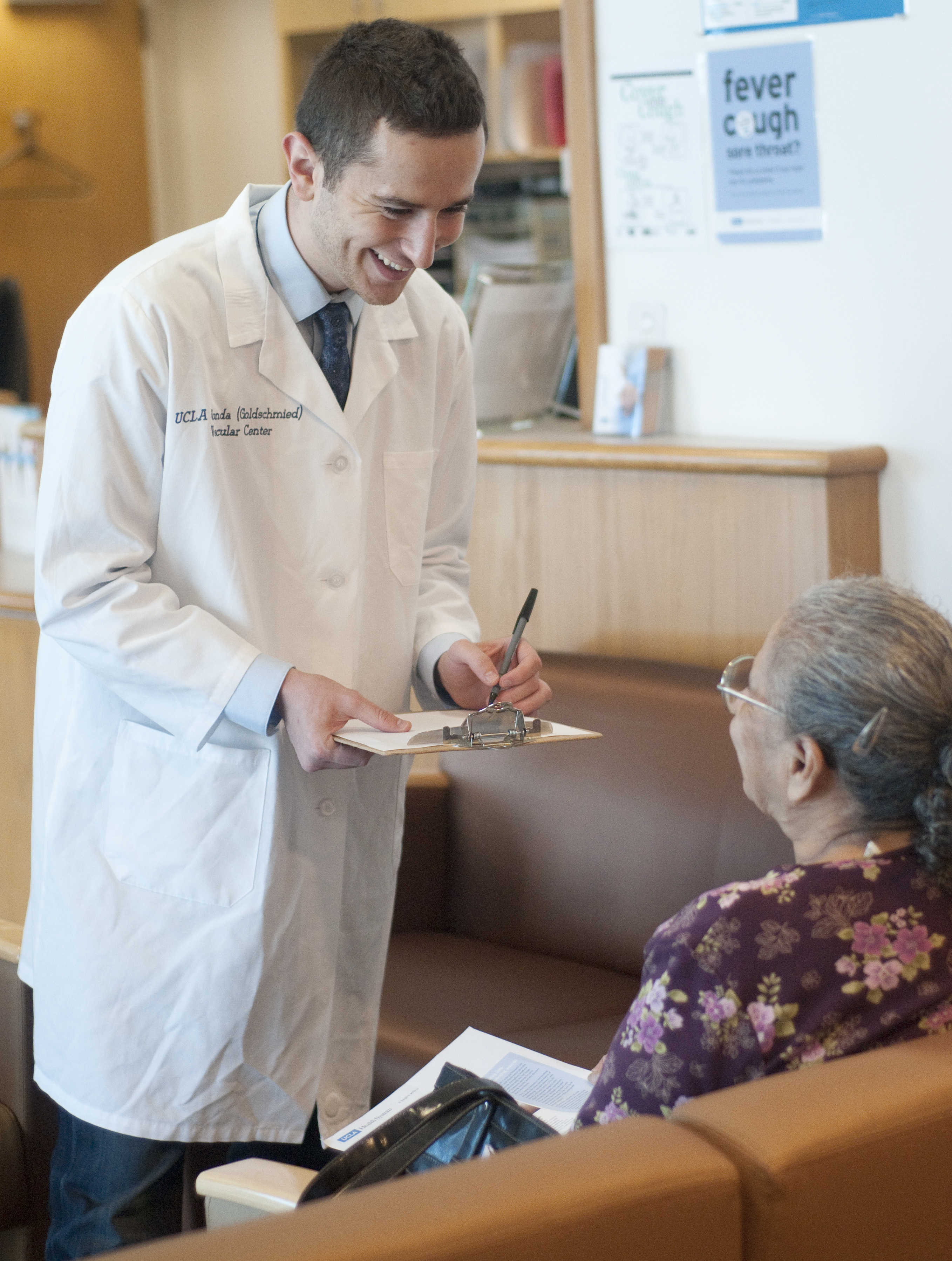It was in the middle of the Iraq War in 2007.
The hospital was crowded with patients as American doctors rushed a middle-aged Iraqi man into the Combat Support Hospital in Baghdad, Iraq. He had been shot.
The main artery in the man’s leg was ruptured, causing massive, uncontrollable bleeding.
After trying unsuccessfully to repair the artery, doctors decided to amputate his leg.
Sinan Jabori, who volunteered at the Combat Support Hospital, watched as the doctors performed this surgery. He was 16 years old at that time.
“I’ve witnessed a lot of horrible events,” said Jabori, now a fifth-year psychobiology student at UCLA. “Suicide bombs, roadside attacks, people were blown in parts in front of my eyes.”
When the war started in 2003, Jabori and his family had lived in Iraq his entire life.
“With the war, he was pretty sheltered,” said Manya Thomasian, Jabori’s 35-year-old cousin who considers him as her brother. “There were curfews while you were living there depending on the circumstance. Even though he was sheltered, he was still able to find ways to advance himself for the better.”
Jabori began volunteering at the American-run Combat Support Hospital a few years after the war began.
Although it took anywhere from 30 minutes to two hours to drive to the hospital and pass through security, Jabori volunteered there four to five times a week. He said he wanted to help in whatever way he could.
At the Combat Support Hospital, Jabori assisted with patient transportation and patient care while also shadowing doctors. He also volunteered alongside the U.S. Army, translating from English to Arabic and vice-versa.
In 2008, Jabori and his family moved to the U.S. to escape from the violence in Baghdad, he said.
After attending community college, Jabori transferred to UCLA in 2010.
When he first saw the various medical technologies doctors and precautions used at the Ronald Reagan UCLA Medical Center, Jabori said he was surprised.
At the Combat Support Hospital in Iraq, he had witnessed many people with injuries to their lower body as a result of violence during the war.
“A lot of (the Iraqi) patients were given amputation without even thinking of approaching (the procedure) in a less-invasive way,” Jabori said.
In the U.S., it was different.
Jabori noticed that doctors try to stay away from aggressive surgeries before thinking of amputation or other more serious procedures, he said.
Comparing medical facilities in the U.S. to those back home in Iraq, he quickly became concerned that people in developing countries were not getting adequate medical care, he said. For this reason, one of Jabori’s goals is to go back to Iraq, and educate doctors and health care professionals on ways to better treat the patients.
Last year, Jabori co-founded Preemptive Love Coalition at UCLA, a branch of the national organization that sends physicians to Iraq to operate on children with heart problems. The organization also trains professionals in Iraq with new devices and technologies to help them operate on the patients safely, Jabori said.
Jabori’s passion for medicine also led him to medical research.
Two years ago, he started working as a research assistant at the Division of Vascular Surgery in the David Geffen School of Medicine. Earlier this year, he presented his research at the annual meeting of the Southern California Vascular Surgical Society, comparing two different drug combinations in patients and elaborating on a new technique that used a medical device to repair one of the arteries in the leg.
The society awarded him the first place Resident/Student Award.
Jabori’s competition included residents, fellows, medical students and vascular surgeons, said Dr. Juan Jimenez, assistant professor in the Division of Vascular Surgery at UCLA and one of the voters on the committee who has previously worked with Jabori.
“He’s an undergraduate,” Dr. Jimenez said. “That’s pretty amazing.”
When he’s not studying or doing research, Jabori busies himself with many different activities. He is involved with the United Arab Society, tutors kids in neighboring schools, performs traditional Arab dances and plays on an intramural soccer team.
Though at first Jabori seemed overwhelmed by the broad range of opportunities in the U.S., Thomasian said she noticed that he has grown accustomed to the new lifestyle.
“The main challenge was really the language and the culture shock when I first came to the United States,” Jabori said. “That’s really what I consider my success so far.”
